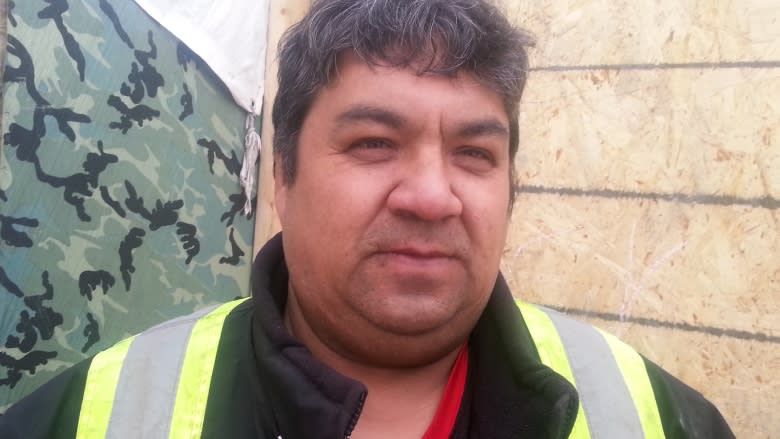Attawapiskat residents remain loyal to the troubled community
At Jerry Nakogee's camp, where dozens of Attawapiskat youths have gathered for an evening bonfire, the longtime resident, who says his son recently attempted to kill himself, explains why he would never leave the remote First Nations reserve.
"When you grow up in a small community, you adapt to the community. You just can't leave, just like that," said Nakogee, who used his camp to host the youth community event. "You can't run away from big problems. You have to deal with them. There's always a way to deal with problems like this."
Earlier, over at Nate's, a small trailer converted into a makeshift snack bar, Barry Koostachin said that the remote northern Ontario First Nation may have its problems, but quite simply, it's home.
"We're connected to the land," Koostachin said. "It's quiet here. [The city] is too dangerous for me."
Their comments, like many others in the town, could be considered a gentle rebuke to the recent musings of Jean Chrétien.
On Tuesday, speaking to reporters on Parliament Hill, the former prime minister suggested that because of the dire economic climate facing Attawapiskat residents, some may want to consider moving, "like anybody else" in similar circumstances.
"Sometimes, though, the solution is to leave," Chrétien said. "People have to move sometimes. It's desirable to stay if they want to stay, but it's not always possible."
Those remarks, brought on by the news of a spate of suicide attempts in Attawapiskat, drew the ire of some members of Parliament who held an emergency meeting about the suicide crisis Tuesday night.
On Wednesday, following a meeting with Assembly of First Nations Chief Perry Bellegarde and Attawapiskat First Nation Chief Bruce Shisheesh. Ontario Health Minister Eric Hoskins said the government would pledge up to $2 million to help deal with the crisis.
Fear of taking the step
Yet some in the community agree in part with Chrétien's comments and say they would certainly consider exiting the town.
"If I had an opportunity to move, I would take the chance, but the only thing that's holding me back is my family — for my grandparents or my mother," said Charlotte Wheesk. "And sometimes, I think I'm scared I'm going to fall apart if I move south, not have enough for rent or food.
"There's nothing here. There's nothing for kids, there's nothing for some adults. People just start ending up getting into drugs and alcohol. There's nothing. It's not healthy for the young children to live like that."
Her mother, Stella Wheesk, agrees with her daughter that she, too, would like to leave "because there's nothing here.… It's a dead town."
But it's not so simple to relocate one's family.
"It's very expensive. It costs like $600 for a plane ticket to get out of this community," said Rebecca Hookimaw.
"I can't just move away and forget about Attawapiskat." I hear people saying, 'Why can't they just move and get away from Attawapiskat?' But it's not easy."
'This place is home'
Deputy Grand Chief Anna Betty Achneepineskum said no one suggests that people move from other troubled areas in the world, like regions that experience earthquakes.
"Do we ask them why don't they move away from there? Because that's their home. This place is home for the people who are living here," she said. "They have a right to be living wherever they want to live. And the governments should be providing the homes and infrastructure to live wherever they want to live."
The circumstances are not all negative, she stressed, pointing out there are some people in Attawapiskat who have built some small businesses and a life for themselves.
'Closer to the land'
Jack Linklater said he had the opportunity to leave last year but decided to say because his three children like living in the town.
"I wouldn't move. It's closer to the bush, closer to the land. I wouldn't want to live in the city. Too much hassle over there."
His son, Jack Jr., a youth leader, said the community is in need of youth facilities and programs. Linklater, who was honoured last year for rescuing his two nieces from a housefire two years ago, met with Bellegarde Wednesday to present him with a list of priorities, including a youth camp site and youth centre.
But despite the problems and youth services that are desperately needed, he, too, does not want to leave, saying he has strong ties to the community.
"This is where our ancestors have been. Our family, our trapping grounds, our hunting grounds."




